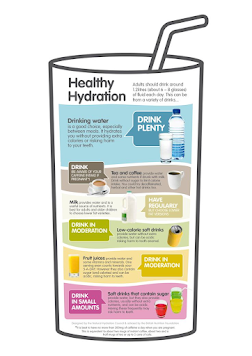Proven Strategies for Optimal Oral Hygiene: A Comprehensive Guide
Introduction:
Maintaining good oral hygiene is vital for overall health and well-being. A healthy mouth not only contributes to an attractive smile but also plays a significant role in preventing various dental and systemic diseases. In this article, we will delve into a comprehensive guide that highlights proven strategies to achieve and sustain optimal oral hygiene. These tips, based on scientific evidence and expert recommendations, will empower you to prioritize your oral health effectively.Meta Description: Discover effective strategies for maintaining optimal oral hygiene with this comprehensive guide. Learn proper brushing techniques, the importance of flossing, tongue cleaning, mouthwash use, regular dental check-ups, and the role of a balanced diet. Prioritize your oral health and enjoy a healthy, radiant smile.Keywords: oral hygiene, optimal oral health, brushing techniques, flossing, tongue cleaning, mouthwash, dental check-ups, balanced diet, dental care, healthy smile
Brushing Technique and Frequency: The foundation of oral hygiene lies in proper brushing technique and frequency. Dentists recommend brushing your teeth at least twice a day using a soft-bristled toothbrush and fluoride toothpaste. To ensure effective cleaning, use gentle circular motions, paying attention to all tooth surfaces, including the front, back, and chewing surfaces. Remember to replace your toothbrush every three to four months or sooner if the bristles become frayed.
- Importance of brushing technique and frequency
- Tips for effective brushing using a soft-bristled toothbrush and fluoride toothpaste
- Guidance on replacing toothbrushes regularly
- Significance of flossing for removing plaque and food particles
- Step-by-step instructions for proper flossing technique
- Alternative interdental cleaning options for those finding traditional floss challenging
- Exploring the often-overlooked importance of tongue cleaning
- Benefits of regular tongue cleaning for fresh breath and reduced plaque buildup
- Techniques for tongue cleaning using tongue scrapers or toothbrushes
- Understanding the benefits of incorporating mouthwash into your routine
- Recommendations for choosing an antimicrobial mouthwash
- Clarifying the complementary nature of mouthwash with brushing and flossing
- Importance of scheduling regular visits to the dentist
- Overview of professional cleanings and early detection of dental issues
- Personalized advice for maintaining optimal oral hygiene
Balanced Diet and Hydration: A well-balanced diet plays a significant role in oral health. Limit your intake of sugary and acidic foods and beverages, as they contribute to tooth decay and enamel erosion. Instead, opt for a diet rich in fruits, vegetables, whole grains, lean proteins, and dairy products for essential nutrients. Additionally, staying hydrated promotes saliva production, which helps neutralize acids and wash away food particles, thus reducing the risk of dental problems.
- Highlighting the significance of a balanced diet in oral health
- Strategies for limiting sugary and acidic foods and choosing tooth-friendly alternatives
- Emphasizing the role of hydration in promoting saliva production for oral health benefits






Comments
Post a Comment